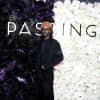Carly Rae Jepsen likes both coasts. When we start our phone call and I ask if she prefers L.A. to New York, she tells me to think of both cities as boys. “L.A. was the slow burn for me, where I didn't know if I liked him at first,” she says over the phone from her apartment’s balcony in Los Angeles, before she headed to tour rehearsals. “Now, three years later, he's grown on me. But New York was like, at first sight love.”
This is pure Carly Rae—a sprinkle of whimsy and a dash of intimacy, with the touch of a master songwriter. The 29-year-old singer who made a dinosaur-sized footprint with her 2012 single “Call Me Maybe” returns this week with her followup album, E•MO•TION. The Cyndi Lauper-inspired album has a lineup of potential hits—its sugary lead single, “I Really Like You,” made a modest impact—but those are balanced with more alternative songs produced by a team of big less-than-mainstream names like Ariel Rechtshaid, Dev Hynes, and Vampire Weekend’s Rostam Batmanglij.
This isn’t a new strategy of course—pop stars have always pulled from the underground looking for a newer sound and street cred. Nile Rodgers lent out his sound to Diana Ross in 1980 for Diana and made the biggest album of her storied career. More recently Rechtshaid and Hynes’ work with HAIM, Sky Ferreira, and Solange has set a new bar for what mainstream pop can sound like. If anyone with decent WiFi can now get one hot track to blow up, established hitmakers must also innovate to make a lasting mark. To make memorable connections in 2015, Taylor Swift formed a squad and sang with Fetty Wap, Nick Jonas collaborated with Tinashe, and Katy Perry manufactured memes at the superbowl. For E•MO•TION, it seems Jepsen has tried to find collaborators who will organically, permanently, elevate her cool.
“I like to color a little bit outside the lines,” Jepsen says, explaining her desire to fill the cracks between mainstream and indie as a result of her childhood in British Columbia. “I think E•MO•TION was trying to kind of combine those two sides, having a little bit of both. If we're gonna get really deep about it, it’s because I grew up in two different houses: one that was probably a little bit more mainstream, if we're talking music, and one that was more artsy. My whole life, I would switch every two days. There are those two sides to me.”
Rechtshaid, who worked on the super moody “All That” and the carnival-like “When I Needed You,” credits Jepsen’s success to her “authenticity” as a songwriter. “Something about her music always feels subversive, it feels aware and unaware of itself at the same time,” he says over the phone from his home in L.A. “It's got depth, in a nutshell. She has depth—I think that maybe subconsciously people feel that.”
“Warm Blood,” a pulsing song Jepsen wrote with Batmanglij is maybe the best example of this weightiness. It was originally being worked on as “Warm Love,” before a mix-up led to a creative choice. “The more we chipped away at it,” Jepsen says, “we couldn't get away from how much better ‘blood’ felt and how realer it was. It's almost like that warm skin or that feeling of intimacy.” “Blood” begins with Jepsen backed by a stuttering drum, cooing I’ve got a cavern of secrets / none of them are for you. Jepsen called this “true intimacy, true utter intimacy,” but declined to reveal its true meaning.
Jepsen speaks about E•MO•TION's collaborators in a loving tone. Four years ago, Jepsen was bartending at a Sia show in Vancouver; now, when I bring up the hitmaker who helped write surefire smash “Boy Problems” and the dizzying “Making the Most of the Night,” Jepsen describes her as a “butterfly.” She was over the moon when Batmanglij reached out to her, she says, and got in touch with Hynes after falling in love with his production on Solange’s “Losing You.”
If she sounds like a fan, that’s not to say that she doesn’t also acknowledge her own talents. Jepsen wrote “Call Me Maybe” and has credits on every song she’s released. Calling from California, Dev Hynes compliments Jepsen’s knack for writing vocals and harmonies. “She’s so heavily involved in every song—writing and production wise—and yet, she still talks about who she’s working with all of the time,” he says. “People that aren’t involved never talk about that kind of stuff.”
Jepsen started recording E•MO•TION in early 2014, and says the album took a longer-than-expected amount of time to make partly because of her desire to prove that she was in fact a songwriter. “It was hard for me to put this album out earlier because there was such a desire at the beginning to prove myself as a writer that I was almost unable to hear other people's ideas,” she says. “I was so hungry to prove myself that I was showing all of mine like, ‘Here's what I can do,’ instead of really allowing myself to hear the other ideas in the room and challenge them against my own until we got to a good place.” In several sessions, she notes, producers were confused by her presence, more used to working with artists less “keen on the writing aspect of the music.”
Looking ahead to projects to come, Jepsen says her ideal recording experience would be remote. She’d ship off to a cabin by a lake with a couple contributors—maybe some of the ones she’s worked with on this album—for a few months and hammer out a full body of work in one go. “I've always found that time with somebody is so crucial to have a good connection. As you’re getting more comfortable you allow yourself to become more intimate. Intimacy is so key in a good song.”
For now, that stoic retreat will have to wait. Jepsen’s set to go on a long tour and promote the hell out of this album. After countless eight-hour rehearsals with her band, the show is almost ready. She’s a pop star, after all.


